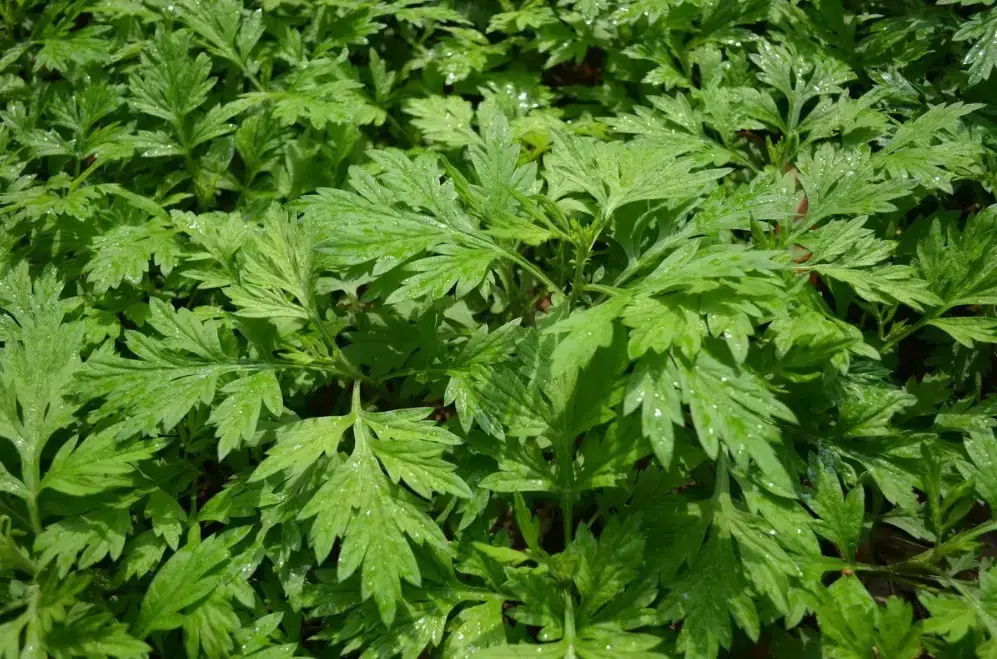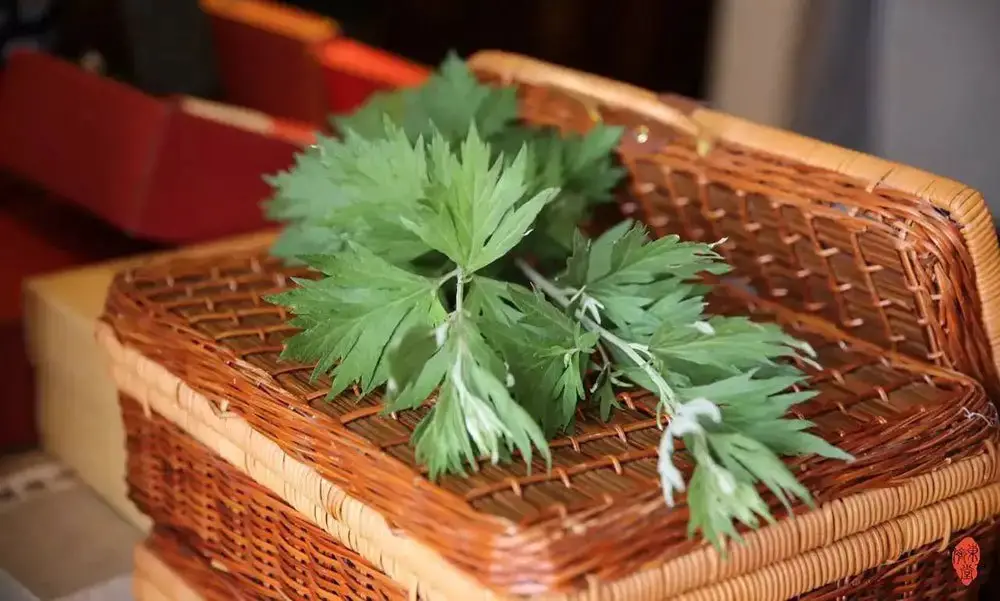Mugwort is the general term for the plants in the Artemisia genus. Cultures around the world have been using herbs for many purposes, including Chinese culture. In China, the mugwort is known famously for its medicinal and culinary uses. In this article, we will explore the mugwort plant in Chinese culture.
What is Chinese Mugwort?

Chinese Mugwort, also known as Artemisia argyi or silvery wormwood is an aromatic, flowering, and herbaceous plant native to China. The Chinese mugwort has pale-yellow, cylindrical flowers that are clustered, with their heads facing down. It is xerophilic which means it can thrive in dry conditions and can be found in coastal scrubs, along roads and railway verges, wasteland and dry mountain slopes. It is bitter, pungent and warm.
The Chinese mugwort is popularly known for its medicinal properties. It was an important part of traditional Chinese medicine, a prehistoric health and wellness system used in China thousands of years ago, for centuries. To date, the Chinese mugwort is being used not only for its medical benefits but also for its aromatic properties.
What is mugwort in Chinese medicine?
As mentioned earlier, mugwort was and still is a crucial plant in Chinese medicine. Mugwort in China has been used for over 2500 years. In traditional Chinese medicine (TCM), mugwort was used to treat several health conditions and was linked to the kidney, liver and spleen meridians. Meridians are pathways that life energy called “qi” (ch’i) takes.
The mugwort in Chinese medicine was an antiseptic, febrifuge and expectorant. Its main use was in a technique known as moxibustion which involved burning the herb after it has been dried and rolled into cones, to heat pressure points. Moxibustion also increases blood circulation.
Mugwort is also believed to reduce arthritis, reduce asthma, relieve menstrual cramps and treat coughs. The mugwort leaves possess antibacterial properties that have proved to be effective against Pseudomonas, Staphylococcus aureus and Bacillus typhi, which are pathogens.
This herb has also helped in relieving stress, headaches, migraines and itching while boosting energy, promoting blood circulation and normalizing menstrual cramps. The Chinese mugwort is also used to boost liver health, ease digestion issues, detoxify the body and relieve muscle aches.
The leaves and stems of the mugwort herb are also used to produce essential oils with compounds like camphor, cineole and pinene which have antibacterial, antioxidant and antifungal effects.
The roots, leaves and stems of the Chinese mugwort have a chemical component known as Artemisinin, which when orally consumed causes soft contractions of the uterus thus promoting cramp-free, regular periods. According to traditional Chinese medicine, this chemical also induced labor in pregnant women. The chemical Artemisinin is also considered to have anti-cancer properties although this theory hasn’t been backed by science.
Despite the few studies conducted on the Chinese mugwort, it is popular among people dealing with constipation, anxiety, chronic fatigue, diarrhea, colic, eczema, depression, low appetite, epilepsy, nausea and insomnia.
What is mugwort used for?

As well as being used for medicinal benefits, mugwort is also used as a bug repellent. The herb is especially known to repel mosquitoes. This mosquito-repelling technique was widely used in the countryside of ancient China, where they harvested, dried and burned mugwort leaves.
Mugwort was also a key ingredient in alcohol, where it was mixed with other herbs and used to flavour beer. Herb mixtures varied depending on the region in which one resided but mugwort was a common ingredient.
Mugwort is also used as a culinary herb. The sweet, pungent and aromatic characteristics of the mugwort make dishes flavorful.
What is mugwort good for?
The mugwort plant is known for its ability to boost energy, relieve constipation, diarrhea, headaches, migraines and itchiness and treat nausea. Mugwort is beneficial among women as it helps regulate irregular periods and relieves menstrual cramps.
Mugwort is also used among those suffering from insomnia, general irritability, anxiety, depression, colic, worm infections and weak digestion.
How to grow Chinese mugwort

The mugwort plant is easy to grow as it requires little care and it can survive in adverse weather conditions like drought. The herb needs sunlight and well-draining soil. Even in dry soil, the plant will thrive but it cannot tolerate wet soil conditions.
To grow Chinese mugwort, ensure to plan your planting space well as the herb grows by spreading its roots. Till your beds properly before planting and enrich the soil with compost and enough fertilizer. Ensure your bed is away from the other plants because the roots of the mugwort release chemicals which may inhibit the growth of other plants.
Mugwort should be grown outdoors in any kind of soil, provided that the drainage is good. This plant does not struggle with any pests and diseases.
How to cook Chinese mugwort
The Chinese mugwort can be incorporated into soups, stews, fish and meat. To cook the Chinese mugwort in soup, simply use it as you would a normal vegetable. In meat, infuse the herb while marinating to improve the flavour and also use it to season the meat or stew.
Mugwort food.
Mugwort food is considered nutritious since the plant is rich in Vitamin C and unsaturated fatty acids. It is used in stews, meat, soups and tea. The young mugwort stems are also used in salads.
Mugwort food is flavorful due to the aromatic nature of the herb. It is mainly used in fatty meals as it supports digestion.
Chinese mugwort tea.
The Chinese mugwort tea is prepared with dried, crushed mugwort leaves, hot water and sweeteners (if preferred). The Chinese mugwort tea has Vitamin A, K, E, Potassium, Calcium, flavonoids, antioxidants and Iron thus considered highly nutritious.
The tea relieves menstrual cramps, reduces anxiety and depression, detoxifies the body, improves digestion and vision and aids with weight loss.
Conclusion.
Although the Chinese mugwort has been used for thousands of years, there haven’t been enough studies to back the benefits. It is advisable to consult a medical doctor before using this herb due to possible allergic reactions. Pregnant women, breastfeeding mothers and children are advised not to use this herb. Despite the few studies, the Chinese mugwort is effective in what it does, no wonder it has survived thousands of years.